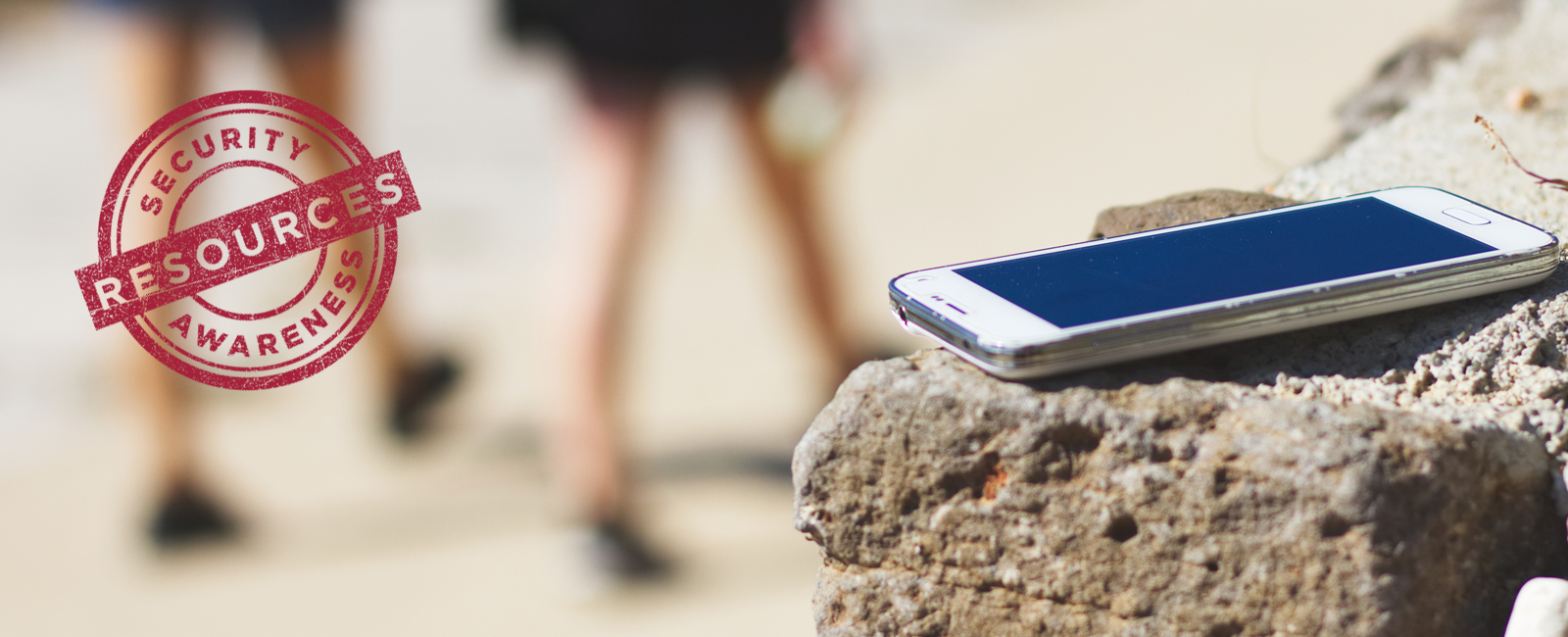
With an increasing amount of sensitive data being stored on personal devices, the value and mobility of smartphones, tablets, and laptops make them appealing and easy targets. These simple tips will help you be prepared in case your mobile device is stolen or misplaced.
- Secure those devices and backup data! Make sure that you can remotely lock or wipe each mobile device. That also means backing up data on each device in case you need to use the remote wipe function. Backups are advantageous on multiple levels. Not only will you be able to restore the information, but you'll be able to identify and report exactly what information is at risk. (See Good Security Habits for more information).
- Never leave your devices unattended in a public place or office. If you must leave your device in your car, place it in the truck, out of sight, before you get to your destination, and be aware that the summer heat of a parked car could damage your device.
- Password-protect your devices. Give yourself more time to protect your data and remotely wipe your device if it is lost or stolen by enabling passwords, PINs, fingerprint scans, or other forms of authentication. (See Choosing and Protecting Passwords.) Do not choose options that allow your computer to remember your passwords.
- Put that shredder to work! Make sure to shred documents with any personal, medical, financial, or other sensitive data before throwing them away.
- Be smart about recycling or disposing of old computers and mobile devices. Properly destroy your computer's hard drive. Use the factory reset option on your mobile devices and erase or remove SIM and SD cards.
- Verify app permissions. Don't forget to review an app’s specifications and privacy permissions before installing it!
- Be cautious of public Wi-Fi hot spots. Avoid financial or other sensitive transactions while connected to public Wi-Fi hot spots.
- Keep software up to date. If the vendor releases updates for the software operating your device, install them as soon as possible. Installing them will prevent attackers from being able to take advantage of known problems or vulnerabilities.